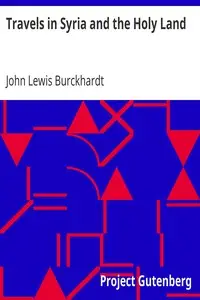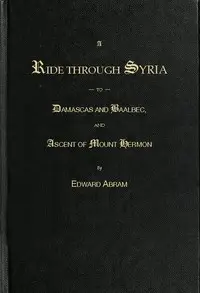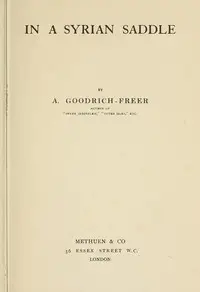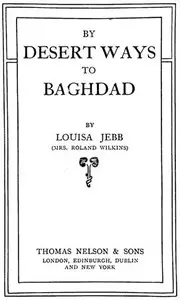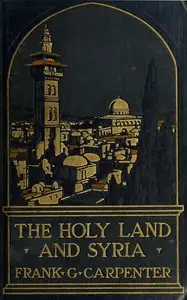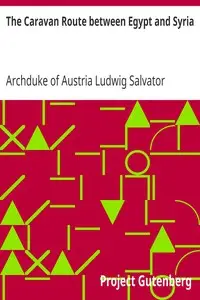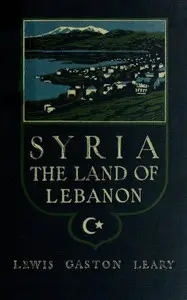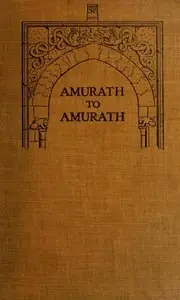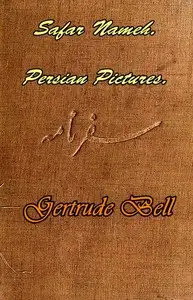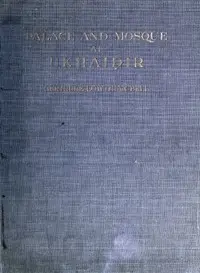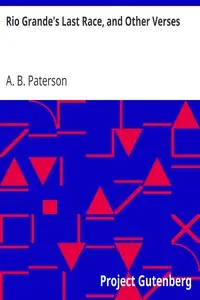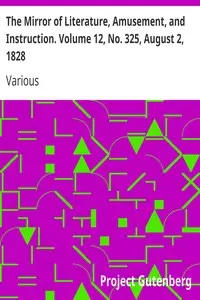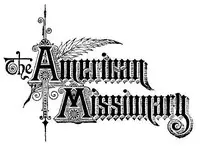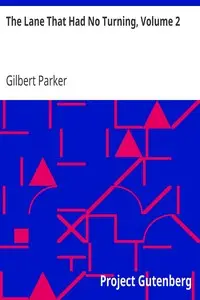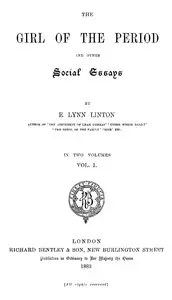"Syria, the Desert & the Sown" by Gertrude Lowthian Bell is a travelogue capturing the author's early 20th-century expedition across Syria, focusing on the region's varied cultures and breathtaking landscapes. Bell strives to deliver an immersive narrative, sharing personal encounters and the narratives of those she met during her travels. Beginning with the thrill of a solitary venture into the untamed lands, she departs from the familiar world, accompanied by her caravan companions, including Lebanese muleteers and a Druze guide. Bell contemplates the fundamental differences between her Western lifestyle and the traditions of the people she encounters, examining their customs, hardships, and the deep historical background of the region, setting the scene for the remarkable events that will unfold throughout her journey across Syria.
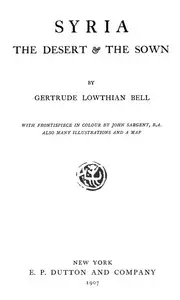
Syria, the Desert & the Sown
By Gertrude Lowthian Bell
Embark on a journey through early 20th-century Syria, witnessing a solo traveler's interactions with diverse cultures and challenging landscapes.
Summary
About the AuthorGertrude Margaret Lowthian Bell was an English writer, traveller, political officer, administrator, and archaeologist. She spent much of her life exploring and mapping the Middle East, and became highly influential to British imperial policy-making as an Arabist due to her knowledge and contacts built up through extensive travels. During her lifetime, she was highly esteemed and trusted by British officials such as High Commissioner for Mesopotamia Percy Cox, giving her great influence. She participated in both the 1919 Paris Peace Conference (briefly) and the 1921 Cairo Conference, which helped decide the territorial boundaries and governments of the post-War Middle East as part of the partition of the Ottoman Empire. Bell believed that the momentum of Arab nationalism was unstoppable, and that the British government should ally with nationalists rather than stand against them. Along with T. E. Lawrence, she advocated for independent Arab states in the Middle East following the collapse of the Ottoman Empire, and supported the installation of Hashemite monarchies in what is today Jordan and Iraq.
Gertrude Margaret Lowthian Bell was an English writer, traveller, political officer, administrator, and archaeologist. She spent much of her life exploring and mapping the Middle East, and became highly influential to British imperial policy-making as an Arabist due to her knowledge and contacts built up through extensive travels. During her lifetime, she was highly esteemed and trusted by British officials such as High Commissioner for Mesopotamia Percy Cox, giving her great influence. She participated in both the 1919 Paris Peace Conference (briefly) and the 1921 Cairo Conference, which helped decide the territorial boundaries and governments of the post-War Middle East as part of the partition of the Ottoman Empire. Bell believed that the momentum of Arab nationalism was unstoppable, and that the British government should ally with nationalists rather than stand against them. Along with T. E. Lawrence, she advocated for independent Arab states in the Middle East following the collapse of the Ottoman Empire, and supported the installation of Hashemite monarchies in what is today Jordan and Iraq.

